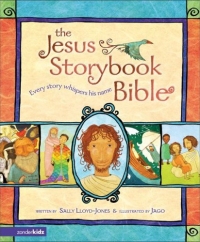My friend Nathan Pitchford was recently made a contributor to Monergism.Com‘s Reformation Theology Blog! In his first post, he dealt with an issue concerning which he has written a book (he is currently seeking to get it published). It is an issue which is very important to our understanding of Scripture–the topic of hermeneutics. Hermeneutics is the science of interpretation. Everyone has a hermeneutic, whether or not they can spell the word, or know what it means.
Evangelicalism today largely favors the use of a literal, grammatical, historical hermeneutic. This approach takes each word in its normal sense unless the context or grammar demands otherwise. It also takes into account the historical setting of the author, book, and audience, in making interpretative decisions.
Nathan argues that this was the approach of the Reformer’s, yet with one important extra feature. The Reformer’s interpretive approach focused on finding how every passage of Scripture centered on Jesus Christ. They viewed the Bible as a unified whole, presenting one story–God’s redemption of fallen man.
Nathan points out that the literal, grammatical, historical hermeneutic has been used due to the influence of the Enlightenment and subsequent liberal theology, to stress a naturalistic approach to the text. Nathan contrasts the two approaches to Scripture prominent today as follows:
“What exactly do I mean when I say that many evangelicals demonstrate ‘a basically un-Christian reading of much of the Old Testament’? Simply put, I mean they employ a hermeneutic that does not have as its goal to trace every verse to its ultimate reference point: the cross of Christ. All of creation, history, and reality was designed for the purpose of the unveiling and glorification of the triune God, by means of the work of redemption accomplished by the Lamb slain from the foundation of the world. The bible is simply the book that tells us how to see Christ and his cross at the center of everything. It tells us who God is by showing us the person and work of Christ, who alone reveals the invisible God. If we do not intentionally ask ourselves, ‘How may I see Christ more clearly by this passage,’ in our reading of every verse of scripture, then we are not operating under the guidance of Luther’s grammatical-historical hermeneutic. If we would follow in the steps of the reformers, we must realize that a literal reading of scriptures does not mean a naturalistic reading. A naturalistic reading says that the full extent of meaning in the account of Moses’ striking the rock is apprehended in understanding the historical event. The literal reading, in the Christ-centered sense of the Reformation, recognizes that this historical account is meaningless to us until we understand how the God of history was using it to reveal Christ to his people. The naturalistic reading of the Song of Solomon is content with the observation that it speaks of the marital-bliss of Solomon and his wife; the literal reading of the reformers recognizes that it has ultimately to do with the marital bliss between Christ and his bride, the Church. And so we could continue, citing example after example from the Old Testament.”
The approach Nathan advocates, is called a “redemptive historical approach” by Reformation Theology Blog, and others. Nathan gives six reasons why an approach which “does not see Christ at the center of every verse of scripture does not do justice to the Reformed worldview.” They are:
1. A naturalistic hermeneutic effectively denies God’s ultimate authorship of the bible, by giving practical precedence to human authorial intent.
2. A naturalistic hermeneutic undercuts the typological significance which often inheres in the one story that God is telling in the bible (see Galatians 4:21-31, for example).
3. A naturalistic hermeneutic does not allow for Paul’s assertion that a natural man cannot know the spiritual things which the Holy Spirit teaches in the bible — that is, the things about Jesus Christ and him crucified (I Corinthians 2).
4. A naturalistic hermeneutic is at odds with the clear example of the New Testament authors and apostles as they interpret the Old Testament (cf. Peter’s sermon in Acts 2, Paul’s interpretations in Romans 4 and Galatians 4, James’ citing of Amos 9 during the Jerusalem council of Acts 15, the various Old Testament usages in Hebrews, etc.).
5. A naturalistic hermeneutic disallows a full-orbed operation of the analogy of faith principle of the Reformation, by its insistence that every text demands a reading “on its own terms” .
6. A naturalistic hermeneutic does not allow for everything to have its ultimate reference point in Christ, and is in direct opposition to Ephesians 1:10, Colossians 1:16-18, and Christ’s own teachings in John 5:39, Luke 24:25-27.
Be sure to read his entire article!
Like this:
Like Loading...
